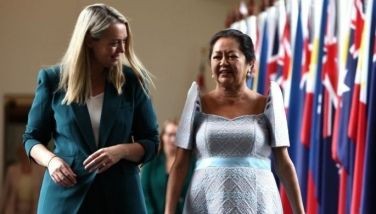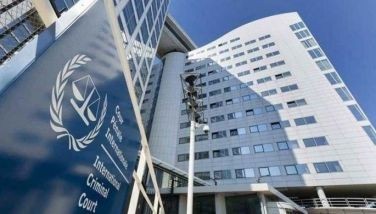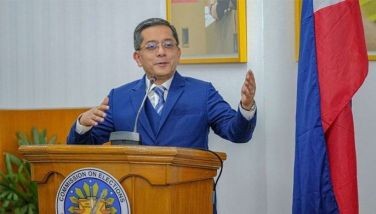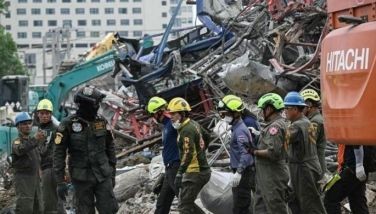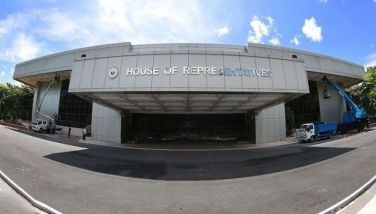NBI nabs 6 Chinese, Pinoy for illegal surveillance
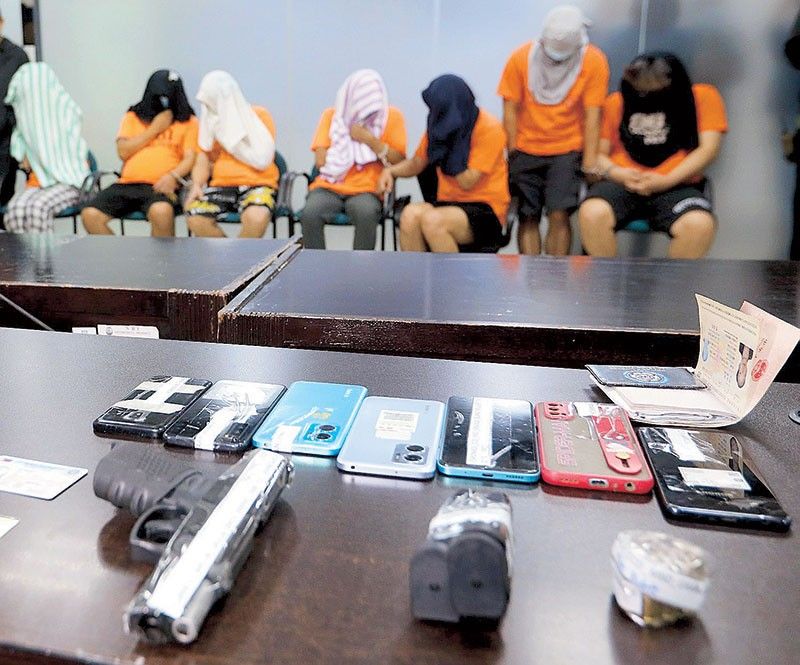
MANILA, Philippines — The National Bureau of Investigation (NBI) has arrested six Chinese nationals and a Filipino on a private island in Zambales for allegedly conducting surveillance activities near the contested West Philippine Sea.
The suspects were arrested on March 19 during a hot-pursuit operation at Grande Island, located within the Subic Bay Freeport Zone.
The operation followed a tip from military officials about possible “covert intelligence, surveillance and reconnaissance operations” being carried out by affiliated members of the Chinese Communist Party-United Front Work.
The NBI identified the Chinese nationals as He Peng, Xu Xining, Ye Tianwu, Ye Xiaocan, Dick Ang and Su Anlong.
“These personalities went to the island disguising as recreational fishers,” Van Homer Angluben, director of the NBI Cybercrime Division, told reporters yesterday. “During surveillance, we noticed that they flew drones whenever a ship passed by.”
During the operation, authorities confiscated gadgets containing photos and videos of Philippine and American naval assets, documents listing the times and dates of naval fleet departures and arrivals at the Port of Subic and fake tax documents.
Melvin Aguillon, the Filipino suspect who served as a bodyguard, insisted that their group did not engage in covert activities, claiming, “They’re just fishing.”
The suspects underwent inquest proceedings on March 21 in Bataan, facing charges of espionage, falsification of documents and concealment of their true names.
Aguillon will also face legal action for violating the Omnibus Election Code due to an illegal firearm found in his possession.
The NBI said the Subic Bay Metropolitan Authority is considering canceling the contract with Sanya CEDF Sino-Philippine Investment Corp., which owns a majority stake in GFTG Property Holdings Corp., the developer of Grande Island.
Since 2019, the government has been concerned about Chinese investors holding a stake in both Grande Island and Chiquita Island in Bataan. The Philippine Navy warned at the time that their presence posed security risks, given that the Navy already used Subic as its home port for warships involved in operations in the West Philippine Sea.
Authorities regard Grande Island as a “strategic vantage point” because it offers a clear view of key sea lanes in the West Philippine Sea, including Panatag (Scarborough) Shoal.
The Department of National Defense (DND) expressed interest on March 20 in designating Grande and Chiquita Islands as military reservations in light of the potential Chinese surveillance activities.
“This will ultimately help secure the operations of the Subic Special Economic and Freeport Zone, including the Riviera Wharf and the Subic Bay International Airport, in consonance with the ongoing development of the naval operating base of the Philippine Navy to strengthen and maintain our strategic presence along our western seaboard,” the DND said in a statement.
However, Rear Admiral Roy Vincent Trinidad, the Navy spokesman, denied that this recent incident prompted the Navy’s interest in transforming the islands.
“The foreign nationals that were arrested on Grande Island were there even before the talks of having that as a naval reservation,” Trinidad clarified on Tuesday.
G7 support
The Philippines is encouraged by the seven most powerful democracies in the world’s consistent acknowledgment of the 2016 South China Sea ruling, further confirming its status as an unassailable part of the corpus of international law.
The Department of Foreign Affairs (DFA) said yesterday the Philippines welcomed anew the G7 Foreign Ministers’ reaffirmation of their collective position on the South China Sea as articulated in the G7 Foreign Ministers’ Joint Statement and their Declaration on Maritime Security and Prosperity, issued in Charlevoix, Canada on March 14.
Comprising the G7 are Canada, France, Germany, Italy, Japan, the United Kingdom and the United States.
“We acknowledge, in particular, the G7’s objection to illicit, provocative, coercive and dangerous actions, and appreciate its consistent expression of concern over the increasing use of dangerous maneuvers and water cannons against Philippine vessels in the South China Sea,” the DFA said in a statement.
The Philippines also acknowledged the G7’s pronouncements on the importance of coastal states refraining from unilateral actions that cause permanent physical change to the marine environment, including land reclamation and the building of outposts, and attempts to change the status quo by the establishment of new geographical facts.
“We appreciate the G7’s consistent reaffirmation that the UN Convention on the Law of the Sea is the legal framework for governing all activities in the oceans and the seas,” the DFA said.
The Philippines joins the G7’s commitment to upholding a free, open, prosperous and secure Indo-Pacific region.
Two exchange cadets from the Philippine Military Academy (PMA) have successfully graduated from the National Defense Academy of Japan (JNDA).
Cadet 1st Class Aerocadet Joshua Willie Ramos and Cadet 1st Class Midshipman Jhoco Apal’s achievements mark a historic milestone for the military school.
PMA public affairs office chief Maj. Clive Lebin said “their journey was one of resilience, surviving Japan’s tough FSA (Foreign Service Academy) training, harsh winter exercises and the challenges of military and academic life abroad.”
Despite language barriers and cultural differences, Ramos and Apal proved their strength alongside Japanese and international cadets.
Lebin declared that the presence of these Filipino cadets at NDA represents a broader commitment to international military cooperation.
The graduation ceremony held over the weekend was attended by the Japanese prime minister, minister of defense, the chief of staff of the Japan Self-Defense Forces (JSDF) and other high-ranking officials.
During the event, Prime Minister Shigeru Ishiba conveyed a message to all international students, stating that “even after you leave Japan, you are still graduates of the National Defense Academy. I sincerely hope you will take pride in this and play an active role in your home countries, becoming a bridge of friendship between your nations and Japan.”
The two PMA students, after graduating, made a courtesy and exit call to Christian de Jesus, the deputy chief of mission at the Philippine embassy in Japan.
Meanwhile, the JMSDF vessel JS Noshiro made its inaugural port call yesterday at Subic, demonstrating the increasingly robust maritime partnership between Japan and the Philippines.
President Marcos meanwhile expressed optimism about forming stronger partnerships with Colombia, Cambodia and Ukraine at Tuesday’s ambassadors’ credentials receiving ceremony in Malacañang, believing “there’s more that we can do.”
In separate ceremonies at the Palace, Marcos received the credentials of Ambassadors Edgar Rodrigo Rojas Garavito of Colombia, Sin Saream of Cambodia and Yuliia Oleksandrivna Fediv of Ukraine.
Ambassador Rojas Garavito highlighted his country’s shared aspirations with the Philippines for “lasting peace and development.”
Cambodian Ambassador Sin emphasized his commitment to intensify mutual collaboration with Manila. – Pia Lee-Brago, Michael Punongbayan, Silvia Massa
- Latest
- Trending




















